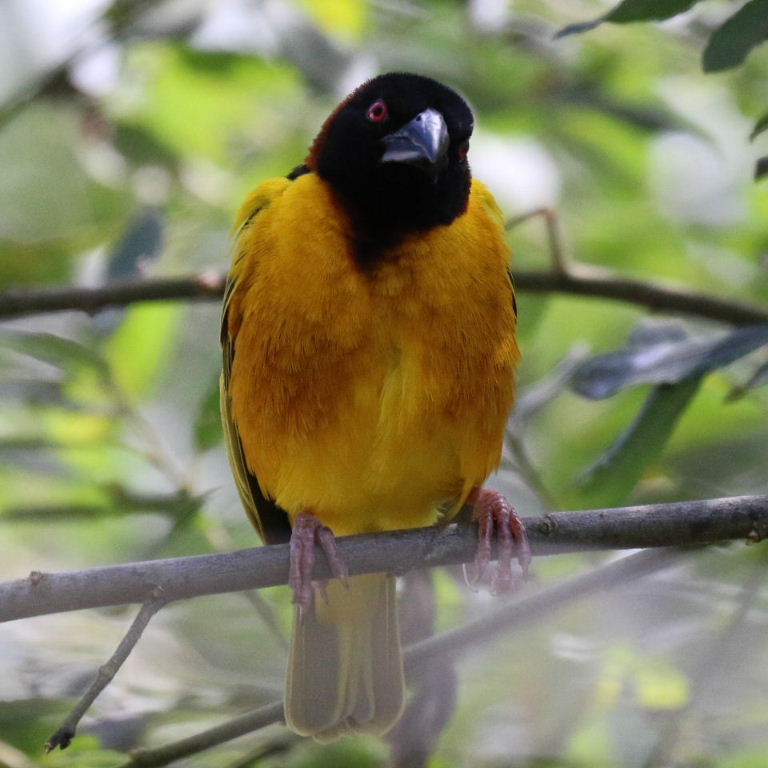Village Weaver Ploceus cucullatus


The male Village Weaver is a bright yellow with more black on its back and a larger black face area than the Southern Masked Weaver,
red eyes and black beak. It also has a black throat and a chestnut brown nape band. They are native to sub-Saharan Africa.



The Village Weaver gets its name from often building its hanging, woven nests near human settlements
(villages/urban areas). The acrobatic males build the basic nest structure to attract females.



There are a number of subspecies over its range. Some have a yellow nape before the chestnut then black
and some have chestnut all the way to the back. The male of southern populations has less black on the head, less or no brown
with a yellow nape and even some with a yellow crown. One,
P.c. nigriceps, is sometimes treated as a separate species.



Several related weaver species look similar, particularly the Black-headed Weaver,
P. melanocephalus,
which has no chestnut nape band, plainer, yellower back/wings and black rather than red eyes.
Also the Masked Weavers, which have only the face area black, not the crown.
The Village Weaver is sometimes called Black-headed Weaver in common with P. melanocephalus which also known as
the Yellow-backed Weaver but the latter is native to savanna habitat, typically near water, in West, Central and East Africa and,
as mentioned, has black eyes.



The male Village Weaver, above left, reverts to female-like plumage, above centre, losing its black head, outside the breeding season.
The adult female Village Weaver also has red eyes.



The olive-headed females have horn-coloured beaks. They line the accepted nest.
They are gregarious birds and many hanging nests will be built in a colony.


Transitional sub-adult males with pinkish eyes.

Juvenile female.




